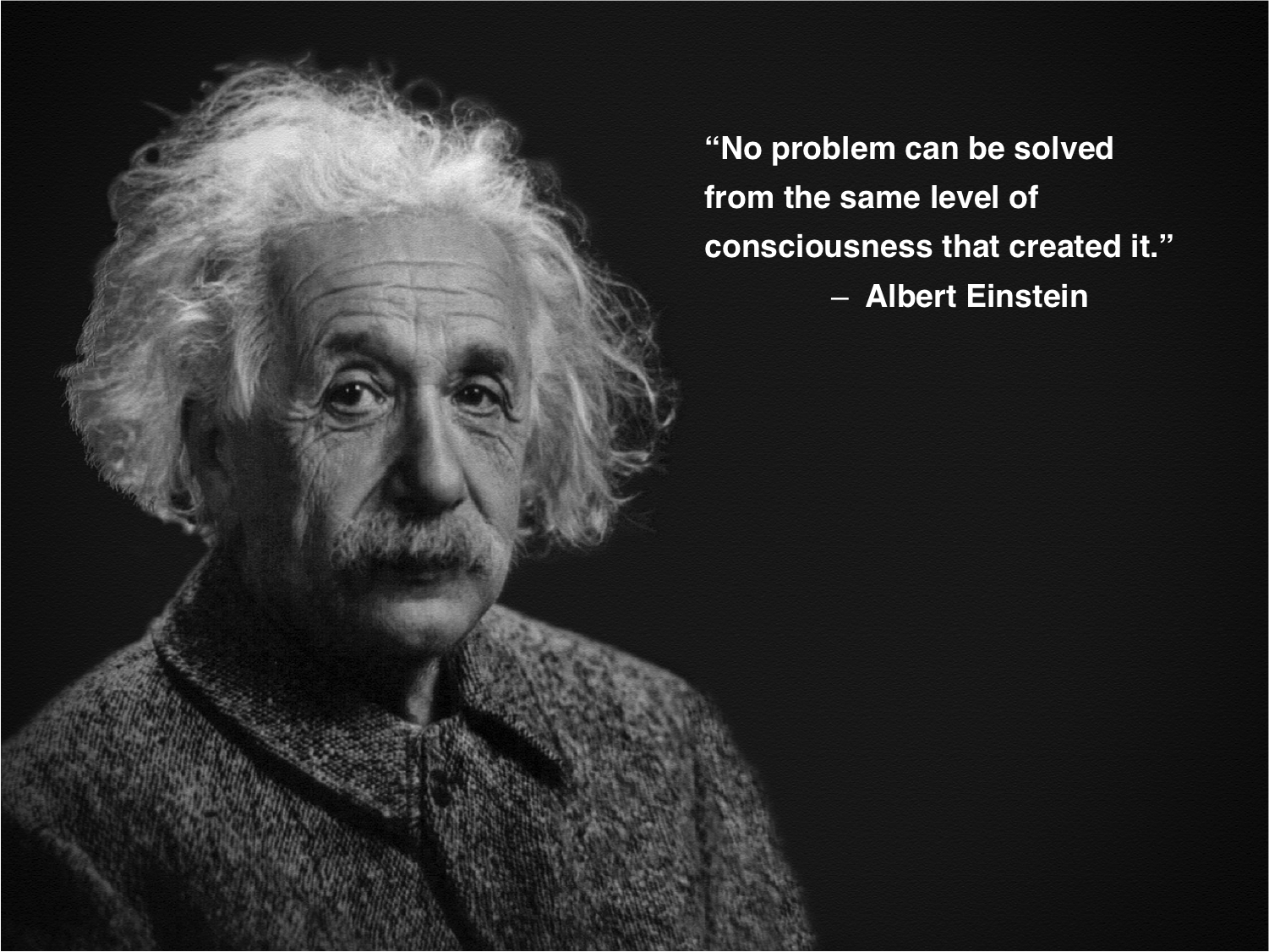Want to Change The World? First Change your Consciousness
Many people, especially Millennials, are known for wanting to work towards greater “social change,” “social innovation,” or “changing the world.”
However, there are some problems with thinking you know how to change the world for the better, if you haven’t raised your level of awareness first. The classic example is that for someone who has a hammer, everything looks like a nail. In the social innovation space, for people who care about access to clean water, it might seem obvious to build more wells. But without raising one’s awareness to think in terms of complex systems rather than simple problem solving, we end up with lots of wells that don’t work after a few years because donors wanted a quick fix rather than enabling the infrastructure and training to ensure that once a well is dug, it’s properly maintained and that the local people have the parts and knowledge to fix it themselves.
Another example is pollution – whether it’s trash in the oceans or global warming, the fact that we have a concept for creating trash rather than thinking in systems and designing for “cradle to cradle” manufacturing is a product of a linear view of the world (from cradle to grave, or a manufactured item to trash) rather than designing industrial processes to mimic nature, where the output of one process because the input to another.
Needless to say, there are a lot of social and environmental challenges out there, and many people at nonprofits would agree that “raising awareness” or converting one-time to recurring donors is a major challenge….
But why is raising our level of consciousness so important?
Because it goes deeper to the fundamental issue of what causes social and environmental problems in the first place. What causes us to cause harm to others – whether it’s physical violence or trashing the planet – is our own suffering that we fail to recognize.
“When another person makes you suffer, it is because he suffers deeply within himself, and his suffering is spilling over.
He does not need punishment; he needs help.
That's the message he is sending.”
― Thich Nhat Hanh
Photo credit: Tyler Nix, via Unsplash
As mammals, we evolved to seek pleasant sensations and avoid unpleasant sensations, and as such, we are constantly trying to change our environment, to change the behaviors of people around us, and to change ourselves towards achieving more pleasure and avoiding pain. The thing is, once you satisfy a craving, whether it’s chocolate, wine, a bigger house, a nicer car… you want something else. The pleasure of buying something doesn’t last – just ask any shopper with an overflowing closet and a pile of credit card debt.
So how do we get out of the rat race of endlessly wanting more and more? By changing our level of consciousness by breaking the cycle of craving. By getting out of the delusion that “if only things were different, I’d be happy.”
A few ideas to contemplate:
- Stop believing that buying something will make you happy.
- Stop thinking that changing things “out there” will make you happy inside.
- Start living as if you already have everything you need.
- What you appreciate, appreciates.
- Practice gratitude – think of 3 things a day that you are grateful for.
- Take care of your mind and body as if you were your best friend.
- Cultivate habits that make you more content and easeful, and let go of ones that don’t serve you.
All of this is easier said than done – because changing habits is difficult. By definition, a habit is something you do without thinking of it. Neurologically speaking, during the process of brain development, lots of neural connections are formed, and those things you practice, you get better at. The more you do something, the more times the neurons involved in those activities will connect to each other: Neurons that fire together, wire together. Practice makes perfect.
As the saying goes:
Watch your thoughts, for they become words.
Watch your words, for they become actions.
Watch your actions, for they become habits.
Watch your habits, for they become your character.
And watch your character, for it becomes your destiny.
What we think, we become.
You wouldn’t eat dinner off of yesterday’s dirty dishes, so why should you try to solve a problem with yesterday’s cluttered mind?
What social or environmental issue wouldn’t benefit from more people who are wise, generous, diligent, patient, honest, resolute, kind, and who live with ease?
That said, it can be hard to develop a new habit without some support. Doing Headspace for 10 minutes a day can be great, but have you ever tried unplugging all your digital devices for a whole 10 days?
Explore further:
www.businesscasualyoga.com/retreats
Or email info (at) businesscasuayoga (dot) com if you have any questions.

